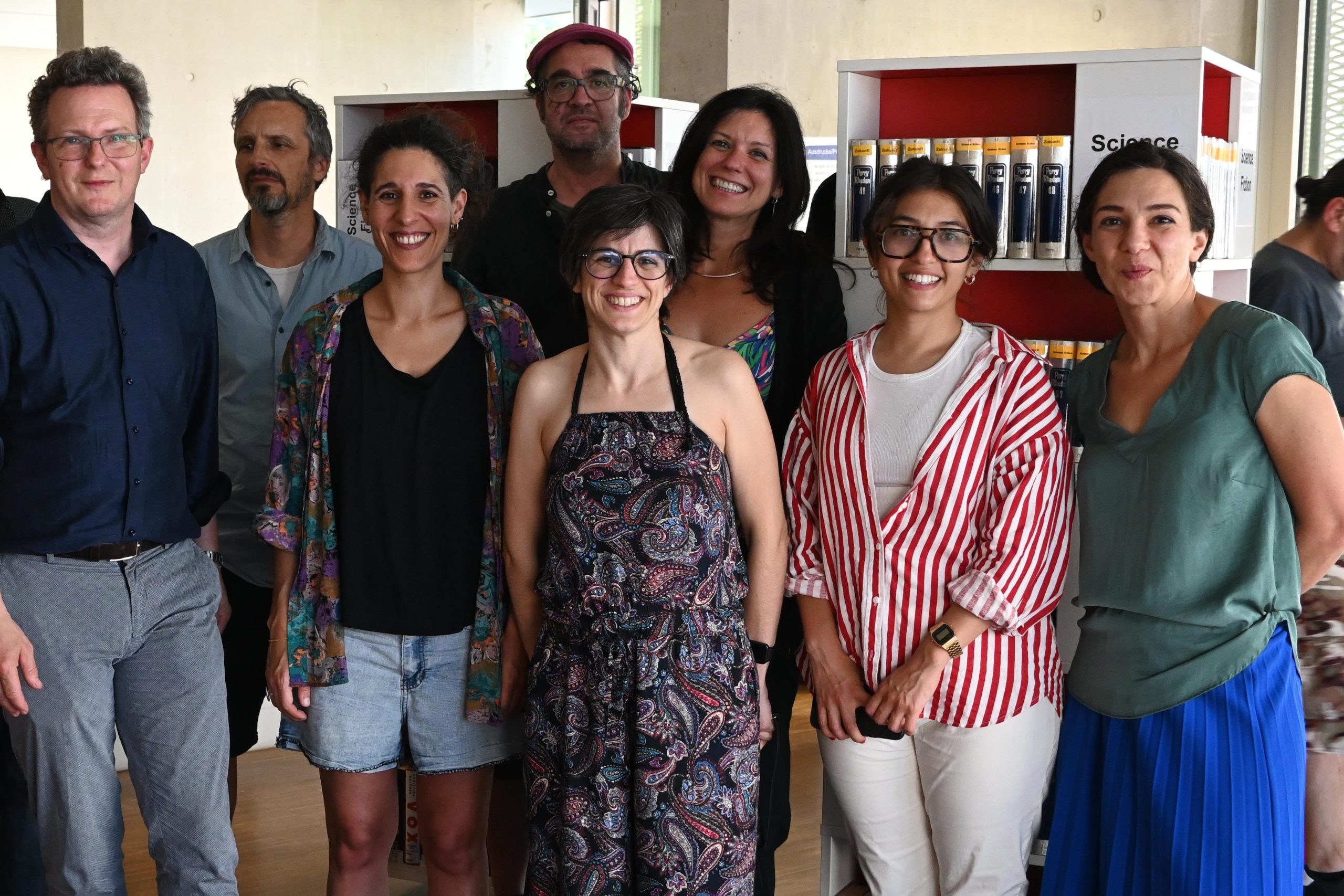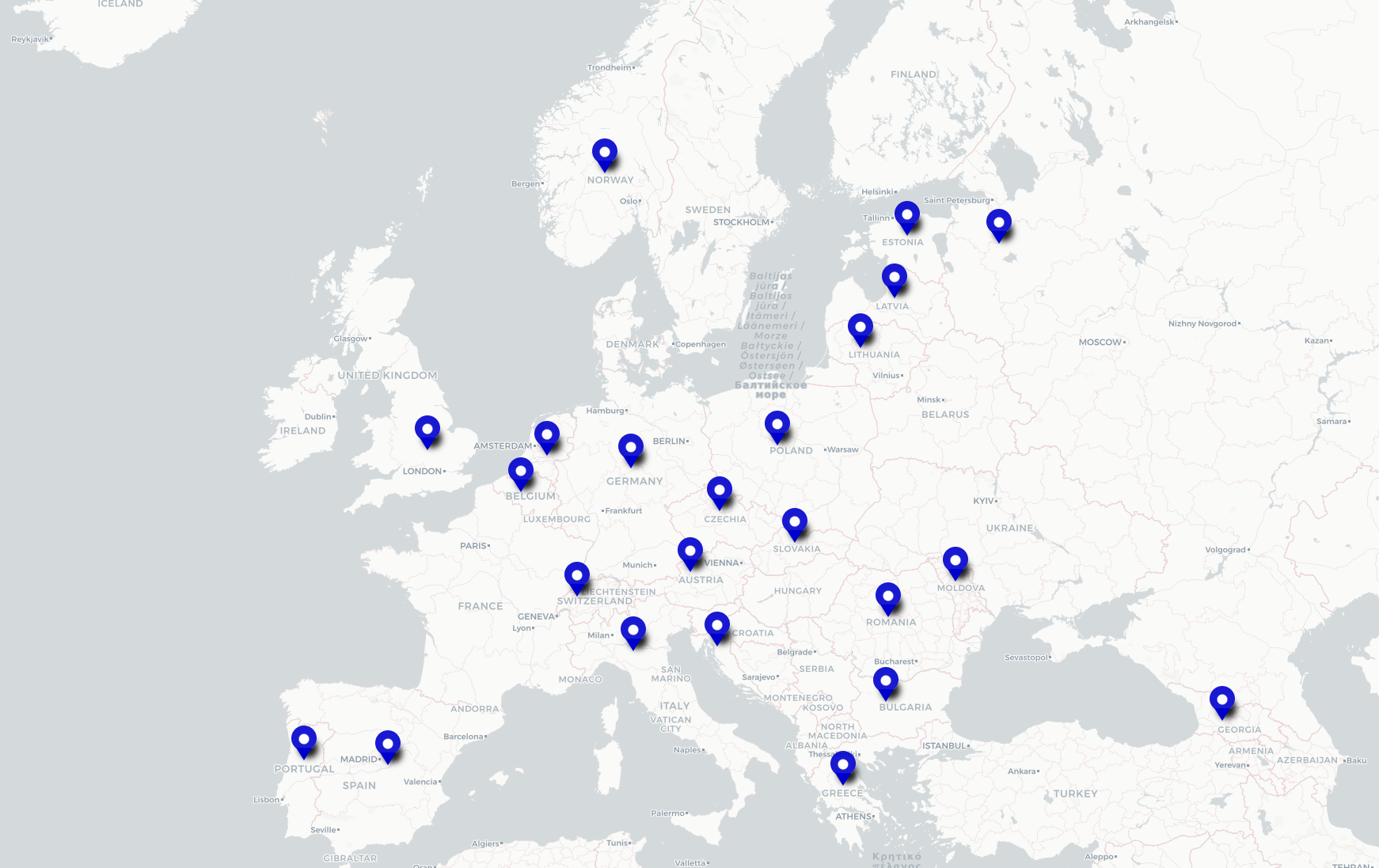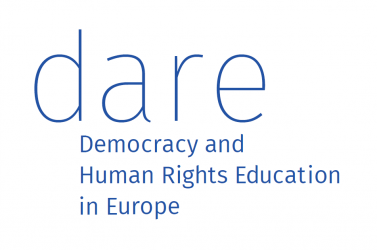Digital transformation is a process that affects the whole of society – the economy, the state, politics, civil society or the environment. In order to empower young people to go beyond ‘catching up’ or ‘getting to know’ digital infrastructures and technologies, a pedagogy of ‘the digital’ is needed that supports them to co-determine how digitalisation should evolve in terms of democratic and sustainable development and in the areas in which they are civically engaged. Education for Democratic Citizenship/Human Rights Education can make a meaningful contribution to digital youth work.
This project is coordinated by DARE member Arbeitskreis deutscher Bildungsstätten and follows on from this. It brings educators, experts and young people in collaborative processes together. It aims to support learning about approaches and impact of technology in the fields where youth is civically engaged and as a result contribute to more awareness for the digital transformation as a relevant dimension in these fields.
Digitalisation is increasingly raising specific questions and challenges about its impact on democracy and our societies:
- How will the digital transformation, and artificial intelligence in particular, change people’s lives or the areas in which we are active in society?
- How can software, platforms and tools be better adapted to our needs?
- How can citizens take ownership and control of their digital spaces and data?
- How can young people get into a position from which they can play a significant role in shaping the digital transformation as a socially and democratically controlled development?
Democracy-related education opens up new perspectives for non-formal education and youth work to extend the pedagogy of the ‘digital’: Digital citizenship education, in line with the Council of Europe’s intention, supports young people in living and learning as citizens in highly digitised societies.
The future of young people
Decisions on digital transformation paths are being made now, but the impact will be felt in the future. There is a high risk that new contrasts and inequalities will be fostered, especially between those who, by and large, successfully navigate the transformation and those who are left behind in a more passive position. What are the levers from a youth perspective? This makes the digital transformation a real issue for youth education and youth work and, above all, shows how its resource-orientated perspective can be developed to support learning ‘the digital’. The project focusses on the following key areas:
- Environment and digital sustainability, including questions about the sustainability of AI, platforms and hardware
- The development of personal identity and autonomy, including in our context in particular digital identity and questions about the (digital) self
- Political governance and participation, including political participation, co-creation or self-directed youth participation, as well as the democratic dimension of technology development and control
Activities for educators and pedagogy
Activities that the project wants to implement:
- Analysis and report on innovation in digital youth education/youth work: This identifies practice and relevant actors in the relevant fields of European non-formal education and youth work with a potential for innovation (according to the criteria of the Council of Europe’s Digital Citizenship Education concept).
- A Digital Youth Work Hub brings together (socio)pedagogical professionals and digital experts and invites them to discuss, think and develop.
- Organisation of test and transfer activities in Germany, Austria, Portugal, Spain and Bulgaria with the partner organisations to develop interesting approaches or to test them together with young people.
- An understandable, useful, practical and inspiring handbook for educators and youth workers, as well as for committed young people. It aims to show how learning in relation to the digital and critical digital youth work can be thought together along a political education approach. The handbook will be translated into German, English, Bulgarian, Portuguese and Spanish and published as an Open Educational Resource
Combining learning, thinking, shaping and advocacy
The aim of this project is to put approaches and methodology into practice and to use the opportunity to develop them further in the youth work and non-formal education community in cooperation with digital civil society and the political level.
In this sense, in addition to actively working on content, the project also aims to contribute to the development of a more holistic understanding of digital youth education/youth work – in line with the objectives of the European Youth Work Agenda – and to feed the results of the participatory co-design process and cross-sectoral exchange into the structural dimension of youth policy.
Policy-related activities
Youth Work Policy Labs open a creative and inclusive process and adress with the results the European policy level: The so-called Bonn process and digital youth work and educational policies. The participants in the labs are young people, policy experts and educational experts.
Furthermore, the project develops policy recommendations for the European and national contexts.
Partners

- Arbeitskreis deutscher Bildungsstätten e. V. (AdB)/ Association of German Educational Organizations (AdB) (Berlin/Germany)
- Sozialprofil – Verein zur Förderung individueller, institutioneller und gesellschaftlicher Entwicklung (Graz/Austria)
- Rede Inducar (Gondomar/Portugal)
- Fundación CIVES (Madrid/Spanien)
- Partners Bulgaria Foundation (Sofia/Bulgaria)
- Democracy and Human Rights Education in Europe (DARE)
Contact
Elisa Rapetti elisa.rapetti@dare-network.eu
The project is supported by the Erasmus+ programme between June 2024 and July 2026.


